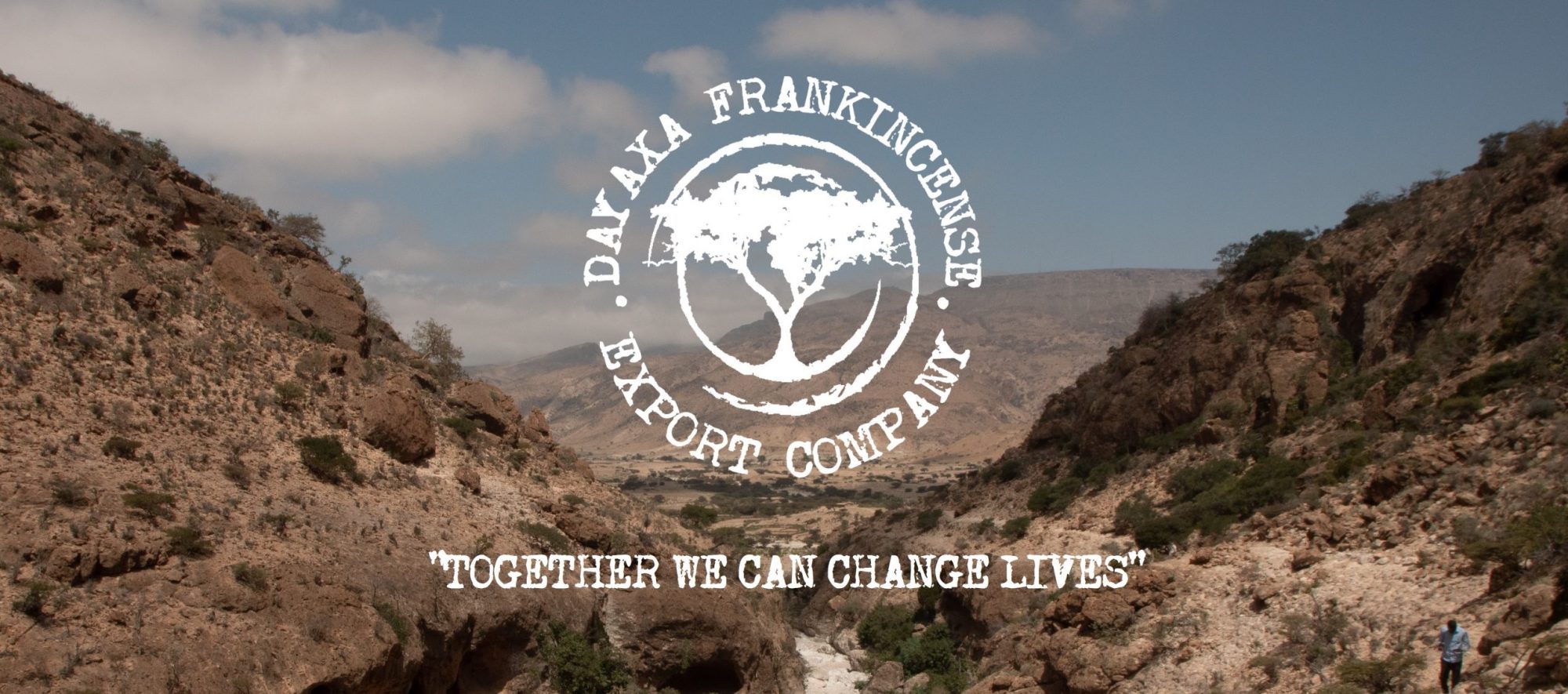Frankincense in Somaliland Has Real Challenges, but Also Real Solutions
A sustainable future for frankincense means supporting transparent, traceable supply chains with verified ethical practices
It’s safe to say we all love frankincense, right? Its extraordinary scent, its spirituality, its complexity and nuance have captured peoples’ hearts for literally thousands of years. It’s one of the most popular essential oils for a reason!
But frankincense also faces a lot of challenges. Recent news stories have highlighted some of the complexities and difficulties in the frankincense supply chain, especially in Somaliland and Somalia. These articles have warned of challenges like overharvesting, unfair labor conditions, and exploitation of women and harvesting communities by unscrupulous companies and individuals.
The truth is, these challenges are real. A lot of it boils down to the fact that the frankincense supply chains have long been opaque and closed. There has been very little traceability or ability to know how or where the resins are produced; this created a situation where exploitation could run rampant and there was no ability to monitor frankincense forest health. Harvesters have been offered rock-bottom prices, with middlemen siphoning off most of the value and communities receiving no investment, trapping them in poverty and forcing them to harvest as much as possible every season. Companies have often found it easier to ignore or greenwash the situation.
In the face of this, some people who care about frankincense trees think it’s best to stop using frankincense altogether. Here’s why we think that’s a mistake.
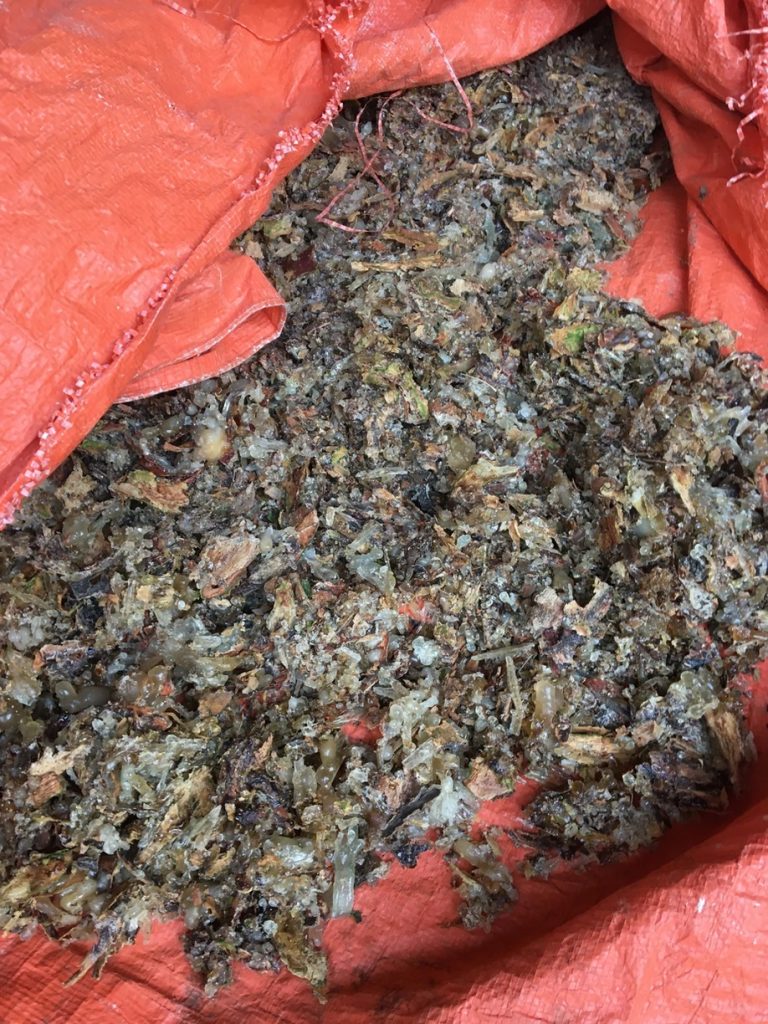
According to the UN, around 225,000 people in Somaliland and Somalia were primarily dependent on frankincense for their livelihoods in 2016. Stopping the trade would do little more than impoverish them further and place the trees at greater risk of more destructive uses such as charcoal. Besides, an unfortunate reality is that a lot of companies are satisfied getting cheap frankincense without really caring how its produced. If companies and consumers who care stop using frankincense, there will be no force in the market to drive change and demand sustainable and ethical practices.
Instead, people and companies who care should demand accountability from their suppliers. Despite the challenges, there are real solutions to ensure real change and positive impacts on the ground. Together, we can implement these solutions and change the way frankincense is produced.
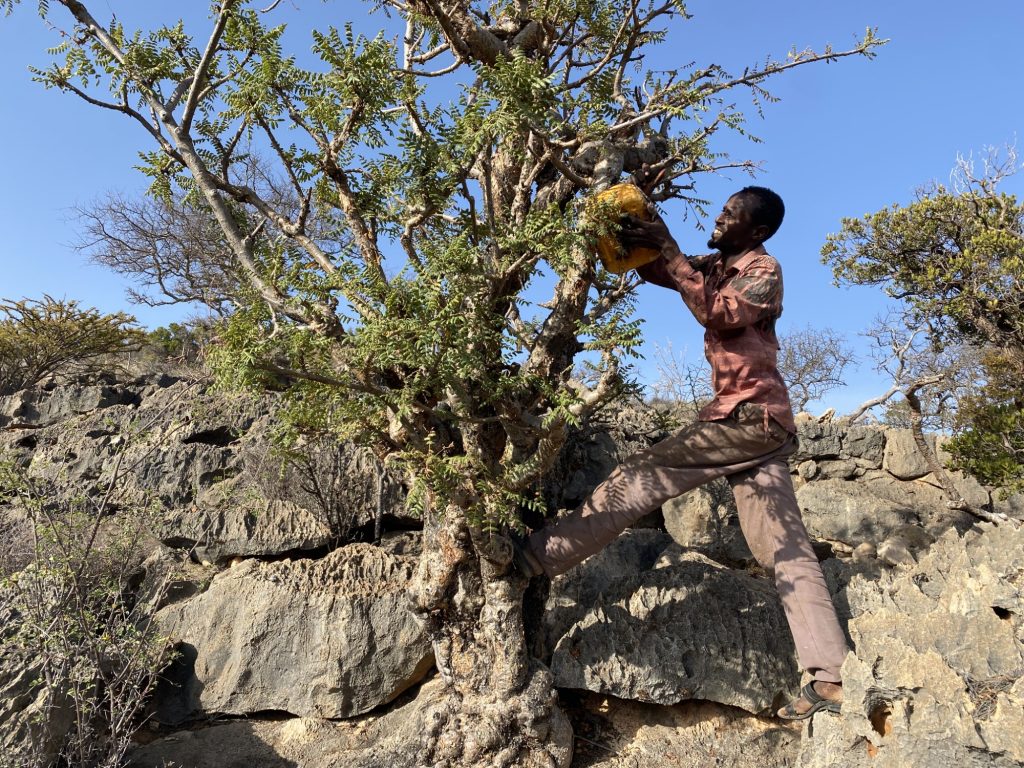
In our view, the key solution is to provide radical transparency in the supply chain, so we can all see exactly how and where the frankincense is source. This allows us to confirm and support ethical practices, and for everyone using the frankincense to make sure their purchases are supporting real, positive change on the ground.
This is why FairSource Botanicals and the Dayaxa Frankincense Export Company have partnered with ProvenSource and industry-leading brands such as LUSH, Pacha Soap Company, and Soli Essential Oils to work towards the world’s first and only completely blockchain-traceable source of Boswellia carteri frankincense.
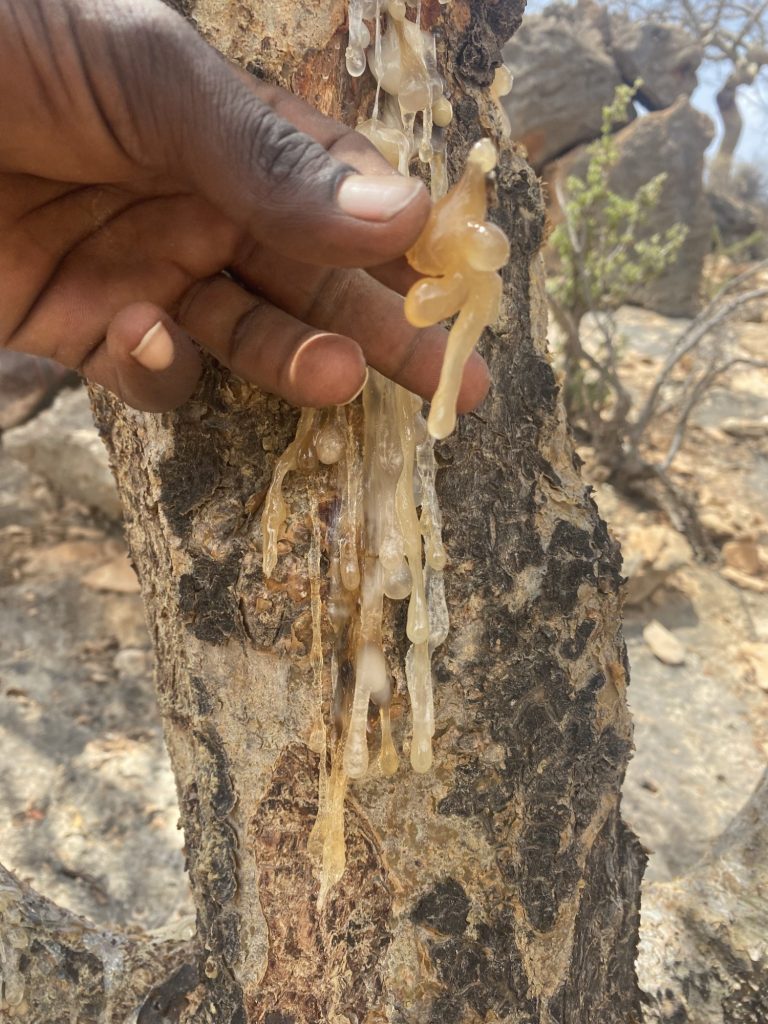
Blockchain allows us to give radical transparency into where and how we source our frankincense. It gives us an incorruptible platform to document all our practices, including:
Origin and Movement of Resin
By documenting resin purchases and movements in real time, we can show exactly how much resin came from mapped harvesting sites, and track its movement along each step of the supply chain, from tree to bottle of oil.
Sustainable harvesting and Ecosystem Management
Since we know where the resin comes from, we can monitor those sites for sustainable practices. We photograph hundreds of individual trees in our harvesting sites every season to confirm good practices are being used and to monitor their health in real time.
Fair Payments to Harvesters
We document our resin purchases in the blockchain app to confirm that payments are made directly to harvesters and cooperative members, not to middlemen. The actual payments are made digitally, through a mobile banking platform, which allows us to confirm with receipts that the payments are made in full and on time; these receipts are uploaded to the blockchain and attached to each transaction.
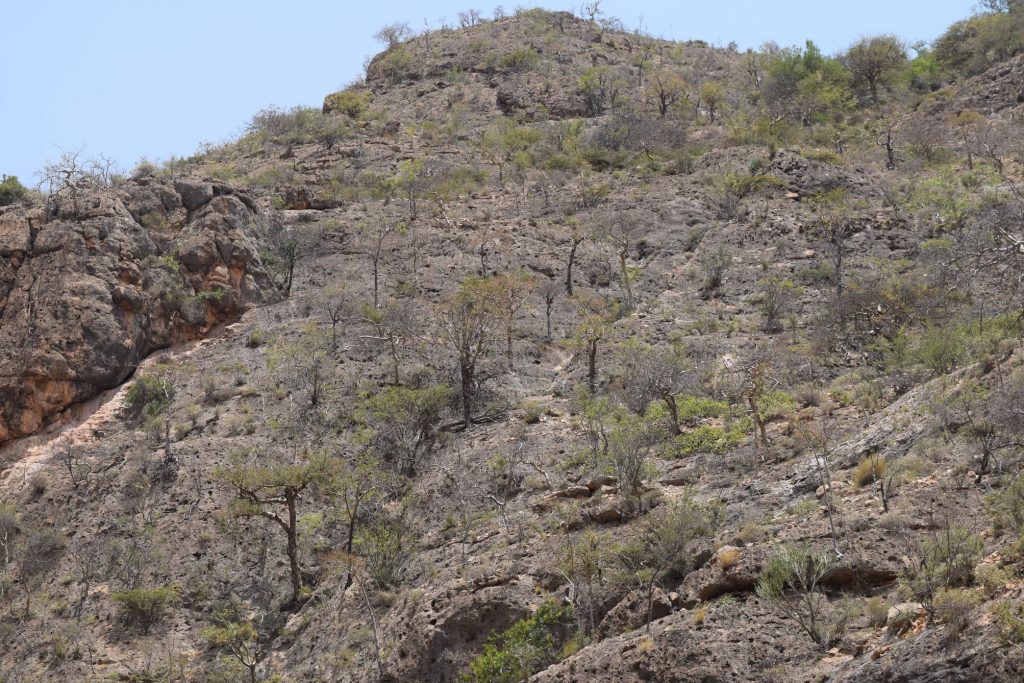
Community Investment
For every kilo of resin we buy, we dedicate money to be used for community development investments to support water, alternative income, education, health care, and other development projects that communities want to see. Recording expenditures and payments on the blockchain lets us confirm that money was used correctly and in the full amount.
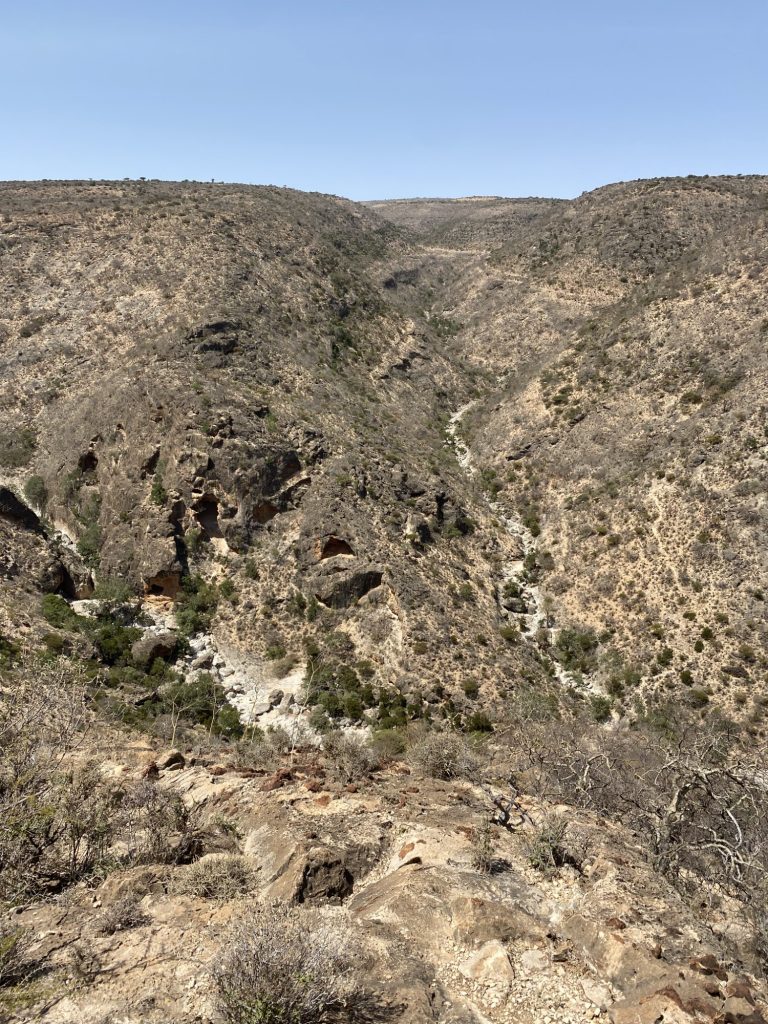
Support for Women
Empowering communities and the region means empowering women. We are working towards establishing a community-based women’s distillation cooperative as a sustainable source of income for women, distributing PPE (masks, gloves, etc.) to the women who sort resin, and ensuring new opportunities and resources for women in the region.
Our system isn’t perfect yet—nobody’s is. Changing a supply chain that has been opaque and exploitative for hundreds of years can’t be done in a day. But we are working every day, every season, every year to raise the standard and improve this supply chain. This constant, incremental improvement is, to us, the heart of what it means to be regenerative. We are building a new, positive narrative for frankincense, a new way of sourcing that benefits, protects, and uplifts everyone in the supply chain, trees and people alike. But we can’t do it alone. Join our consortium, demand that the frankincense you buy can be fully traced to source, and together we can change lives.
